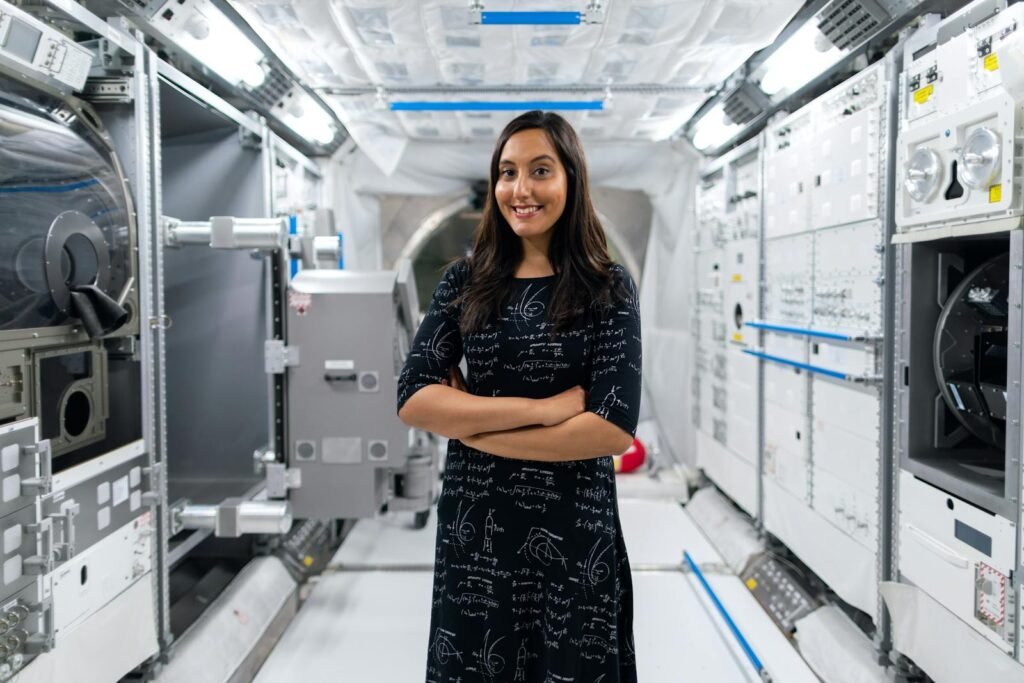Space travel has long captured the imaginations of dreamers and scientists alike, but what does it really mean for the human body? As we celebrate the International Day of Human Space Flight, it’s crucial to understand the profound effects of venturing beyond our planet. Imagine floating in zero gravity, gazing at the Earth from above, but also consider the challenges your body faces in this alien environment. The journey to space is not just a leap for mankind; it’s a transformative experience for every astronaut who leaves Earth. Let’s explore the surprising and often shocking ways space travel changes the human body.
The Gravity of Zero Gravity
In the weightless environment of space, gravity becomes a forgotten force. Astronauts experience a sensation akin to floating in water, but this lack of gravity has significant implications for the body. Without the constant pull of gravity, muscles begin to atrophy and bones lose density, a condition similar to osteoporosis on Earth. This muscle and bone loss can be startlingly rapid, with astronauts losing up to 20% of their muscle mass in just two weeks. The absence of gravity also affects the cardiovascular system, leading to fluid shifts that can cause facial puffiness and vision changes. It’s a bit like being on an eternal rollercoaster, with your body constantly adapting to the lack of gravitational pull.
Vision Changes: The Eyes Have It
One of the more surprising effects of space travel is the impact on vision. Many astronauts report changes in their eyesight during and after their missions. In space, the shift of fluids towards the head can increase pressure on the eyes, leading to a condition known as Spaceflight-Associated Neuro-ocular Syndrome (SANS). This can cause vision to become blurry or distorted, and in some cases, these changes can persist long after returning to Earth. Imagine waking up one day and realizing the world looks different – that’s the reality for many space travelers.
The Heart’s New Rhythm

In the weightless environment of space, the heart doesn’t have to work as hard to pump blood throughout the body. This can lead to a decrease in heart muscle mass and changes in heart rhythm. Some astronauts experience a phenomenon known as “space heart,” where the heart becomes more spherical. While this transformation might sound like something out of a science fiction novel, it highlights the adaptability of the human body. However, these changes can pose risks, including increased susceptibility to arrhythmias and other cardiovascular issues.
A Cosmic Workout: Exercise in Space

To combat the effects of muscle and bone loss, astronauts must adhere to a strict exercise regimen while in space. Exercise becomes not just a routine but a necessity, with astronauts spending up to two hours a day on specially designed equipment. This includes resistance machines that mimic weightlifting and treadmills equipped with harnesses to simulate gravity. It’s a bit like working out in a gym on another planet, with the stakes being the astronaut’s long-term health. These workouts help to slow muscle and bone degradation, ensuring that astronauts return to Earth in the best possible condition.
Radiation: An Invisible Threat
Space is not just a void; it’s filled with cosmic radiation that poses a significant threat to astronauts. Unlike Earth, which is shielded by a protective atmosphere, space travelers are exposed to higher levels of radiation. This increases the risk of cancer and other health issues, making radiation one of the most concerning challenges of space travel. Imagine living under a constant, invisible threat, and you begin to understand the risks astronauts face. To mitigate these dangers, spacecraft are designed with protective materials, and missions are carefully planned to minimize exposure.
Psychological Shifts: The Mind in Space
The psychological effects of space travel are as profound as the physical ones. Astronauts experience isolation, confinement, and the stress of being far from home, all of which can take a toll on mental health. The vastness of space can be both awe-inspiring and daunting, leading to feelings of insignificance or existential reflection. However, many astronauts also report a sense of camaraderie and purpose, as well as a newfound appreciation for Earth. It’s a journey not just through space but through the depths of the human psyche.
The Immune System’s Space Odyssey

Space travel also affects the immune system, which can become weakened in the microgravity environment. This makes astronauts more susceptible to infections and illnesses. The immune system’s response to stress and the altered environment of space can lead to changes in the production of immune cells and the body’s ability to fight off pathogens. It’s like the body’s defense system is on a constant alert, struggling to adapt to the new conditions. Researchers are studying these changes to better understand how to protect astronauts on long-duration missions.
Changes in Sleep Patterns

In space, the concept of day and night becomes blurred, disrupting the natural circadian rhythms that regulate sleep. Astronauts often experience sleep disturbances, which can affect their performance and well-being. The lack of a regular day-night cycle, combined with the stress of the mission, can lead to insomnia or altered sleep patterns. Imagine trying to sleep with the sun rising and setting every 90 minutes – that’s the reality for those aboard the International Space Station. To counteract these disruptions, astronauts use sleep aids and light therapy to maintain a regular sleep schedule.
Reentry: The Return to Earth
Returning to Earth after a space mission is a challenging process for the body. Reacclimating to gravity can be difficult, with astronauts often experiencing dizziness, balance issues, and muscle weakness. It’s like learning to walk again after being bedridden, with the body having to readjust to the forces it once knew. The transition back to Earth’s environment requires careful monitoring and rehabilitation to ensure a smooth recovery. The journey may end, but the effects of space travel linger, reminding astronauts of their extraordinary voyage.
Looking Forward: The Future of Space Travel

As we look to the future, the challenges of space travel continue to inspire innovation and research. From developing better protective measures against radiation to improving exercise equipment and nutritional support, scientists are working tirelessly to ensure the safety and well-being of astronauts. The dream of exploring new worlds is within reach, but it requires an understanding of the human body’s incredible adaptability. As we celebrate the International Day of Human Space Flight, we are reminded of the courage and resilience of those who venture into the unknown. What lies ahead in the cosmos, and how will it continue to shape our understanding of life beyond Earth?




